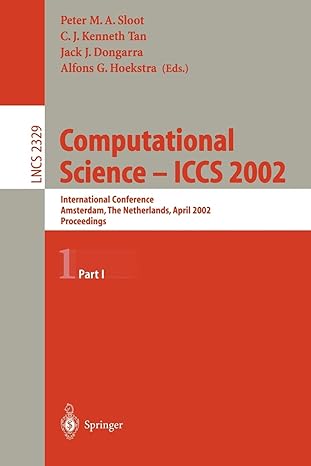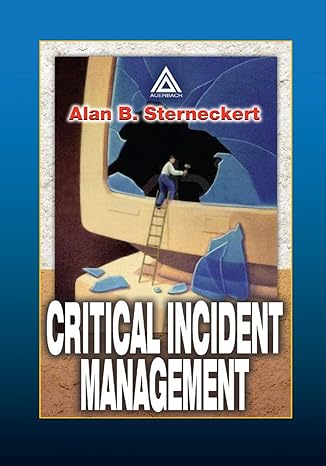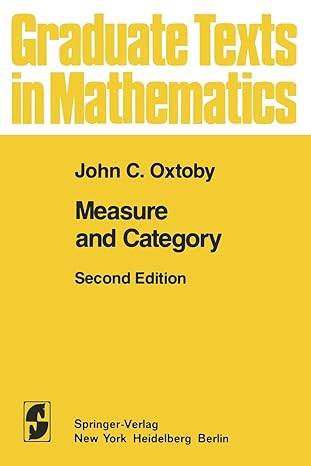Go back


Computational Science ICCS 2002 International Conference Amsterdam The Netherlands April 2002 Proceedings Part I LNCS 2329(1st Edition)
Authors:
Peter M.A. Sloot ,C.J. Kenneth Tan ,Jack J. Dongarra ,Alfons G. Hoekstra

Cover Type:Hardcover
Condition:Used
In Stock
Shipment time
Expected shipping within 2 DaysPopular items with books
Access to 30 Million+ solutions
Free ✝
Ask 50 Questions from expert
AI-Powered Answers
✝ 7 days-trial
Total Price:
$0
List Price: $104.94
Savings: $104.94(100%)
Solution Manual Includes
Access to 30 Million+ solutions
Ask 50 Questions from expert
AI-Powered Answers
24/7 Tutor Help
Detailed solutions for Computational Science ICCS 2002 International Conference Amsterdam The Netherlands April 2002 Proceedings Part I LNCS 2329
Price:
$9.99
/month
Book details
ISBN: 3540435913, 978-3540435914
Book publisher: Springer
Get your hands on the best-selling book Computational Science ICCS 2002 International Conference Amsterdam The Netherlands April 2002 Proceedings Part I LNCS 2329 1st Edition for free. Feed your curiosity and let your imagination soar with the best stories coming out to you without hefty price tags. Browse SolutionInn to discover a treasure trove of fiction and non-fiction books where every page leads the reader to an undiscovered world. Start your literary adventure right away and also enjoy free shipping of these complimentary books to your door.
Book Summary: Computational Science is the scienti?c discipline that aims at the development and understanding of new computational methods and techniques to model and simulate complex systems. The area of application includes natural systems – such as biology, envir- mental and geo-sciences, physics, and chemistry – and synthetic systems such as electronics and ?nancial and economic systems. The discipline is a bridge b- ween ‘classical’ computer science – logic, complexity, architecture, algorithms – mathematics, and the use of computers in the aforementioned areas. The relevance for society stems from the numerous challenges that exist in the various science and engineering disciplines, which can be tackled by advances made in this ?eld. For instance new models and methods to study environmental issues like the quality of air, water, and soil, and weather and climate predictions through simulations, as well as the simulation-supported development of cars, airplanes, and medical and transport systems etc. Paraphrasing R. Kenway (R.D. Kenway, Contemporary Physics. 1994): ‘There is an important message to scientists, politicians, and industrialists: in the future science, the best industrial design and manufacture, the greatest medical progress, and the most accurate environmental monitoring and forecasting will be done by countries that most rapidly exploit the full potential ofcomputational science’. Nowadays we have access to high-end computer architectures and a large range of computing environments, mainly as a consequence of the enormous s- mulus from the various international programs on advanced computing, e.g.
Customers also bought these books
Frequently Bought Together
Top Reviews for Books
Hagos T.
( 4 )
"Delivery was considerably fast, and the book I received was in a good condition."










